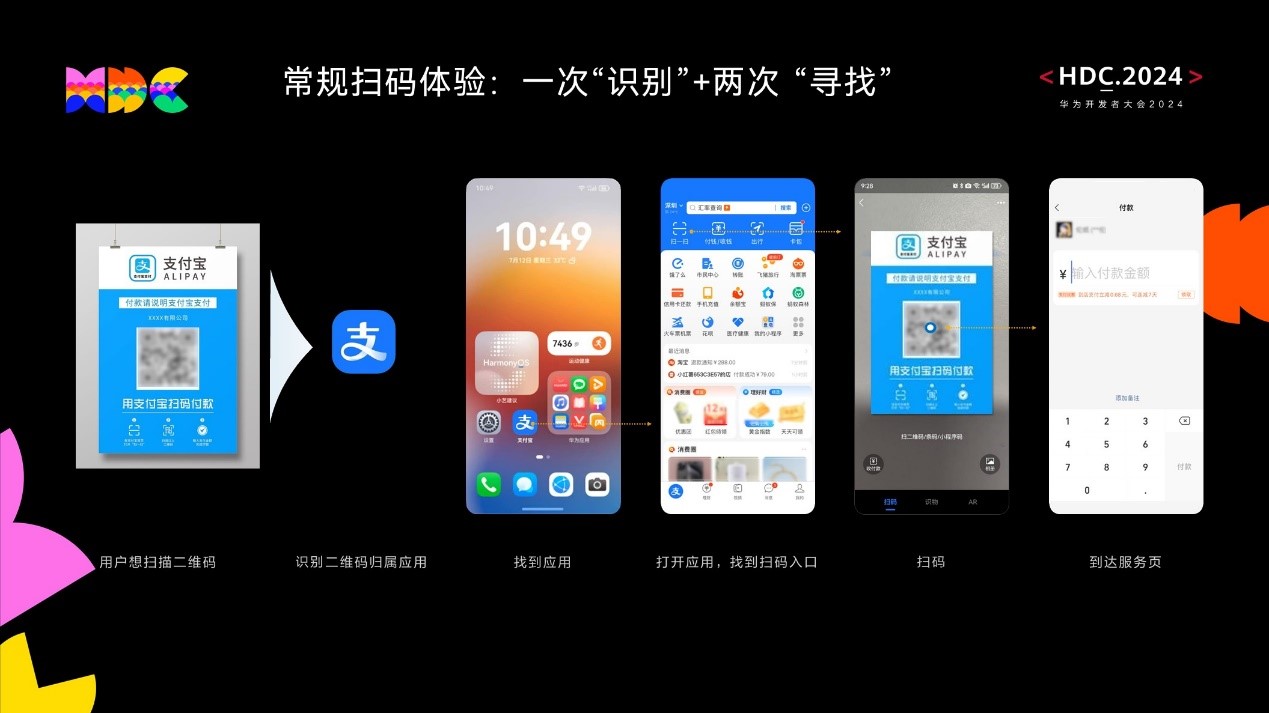gRPC Java入门示例
初探云原生环境下的RPC框架gRPC及其Java入门示例。
目录
1. gRPC介绍
随着云原生时代的到来:
- K8s作为事实上的标准Pass底座
- Istio作为未来的微服务框架(Service Mesh)
- Go作为流行的云原生语言(K8s、Istio)
- Istio对Http、gRPC的原生支持
- 以及最近的Dubbo3 Triple协议全面兼容gRPC
是时候注意到gRPC这个关键词了,
gRPC起源于Google的微服务RPC框架Stubby,后在2015年3月由Google开源为当前的gRPC,
- 目前支持11种程序开发语言(跨语言)
- 使用proto作为IDL接口定义语言(即通过proto定义接口及数据,官方推荐proto3)
- 基于HTTP2实现(原生支持Http2 双向流通信)
- 支持插件式的auth, tracing, load balancing, health checking
gRPC通过Protobuf(官方推荐proto3)定义RPC服务的相关接口:
- 服务
- 方法
- 参数类型
- 返回结果类型
使用proto3定义gRPC服务示例(GreeterService.proto):
// RPC服务定义
service HelloService {
//RPC方法定义
rpc SayHello (HelloRequest) returns (HelloResponse);
}
// 请求参数定义
message HelloRequest {
string name = 1;
}
//响应结果定义
message HelloReply {
string message = 1;
}
然后使用protoc(需安装gRPC插件)或者 后文提到的maven插件 根据预先定义的*.proto文件生成:
- RPC Client端代码(Stub) - 用于客户端调用
- RPC Server端代码 - 服务端需实现接口逻辑,并且启动gRPC server
- 参数、返回结果的相关Protobuf对象
- 支持Synchronous vs. asynchronous两种模式
gRPC支持4种方法类型
- Unary RPCs - 一元的RPC,单独的request和response
rpc SayHello(HelloRequest) returns (HelloResponse);
- Server streaming RPCs - 服务端流RPC,仅发送一个request,然后由Server端返回response流(源源不断的response)直到再无response,由gRPC保证response消息顺序。
rpc LotsOfReplies(HelloRequest) returns (stream HelloResponse);
- Client streaming RPCs - 客户端流RPC,Client端发送request消息流直到再无请request,然后Server端仅返回一个response消息,由gRPC保证request消息顺序
rpc LotsOfGreetings(stream HelloRequest) returns (HelloResponse);
- Bidirectional streaming RPCs - 双向流RPC,双向的读写(request, response)流,且request和response流可各自独立保持消息顺序,例如Server端在接受全部request后才统一发送response,或者接到一条request后就发送response,又或者其他任意组合。
rpc BidiHello(stream HelloRequest) returns (stream HelloResponse);
gRPC目前支持的语言见下表:
| Language | OS | Compilers / SDK |
|---|---|---|
| C/C++ | Linux, Mac | GCC 4.9+, Clang 3.4+ |
| C/C++ | Windows 7+ | Visual Studio 2015+ |
| C# | Linux, Mac | .NET Core, Mono 4+ |
| C# | Windows 7+ | .NET Core, NET 4.5+ |
| Dart | Windows, Linux, Mac | Dart 2.12+ |
| Go | Windows, Linux, Mac | Go 1.13+ |
| Java | Windows, Linux, Mac | JDK 8 recommended (Jelly Bean+ for Android) |
| Kotlin | Windows, Linux, Mac | Kotlin 1.3+ |
| Node.js | Windows, Linux, Mac | Node v8+ |
| Objective-C | macOS 10.10+, iOS 9.0+ | Xcode 7.2+ |
| PHP | Linux, Mac | PHP 7.0+ |
| Python | Windows, Linux, Mac | Python 3.5+ |
| Ruby | Windows, Linux, Mac | Ruby 2.3+ |
proto3支持的field类型见下表:
| .proto Type | Notes | C++ Type | Java/Kotlin Type[1] | Python Type[3] | Go Type | Ruby Type | C# Type | PHP Type | Dart Type |
|---|---|---|---|---|---|---|---|---|---|
| double | double | double | float | float64 | Float | double | float | double | |
| float | float | float | float | float32 | Float | float | float | double | |
| int32 | Uses variable-length encoding. Inefficient for encoding negative numbers – if your field is likely to have negative values, use sint32 instead. | int32 | int | int | int32 | Fixnum or Bignum (as required) | int | integer | int |
| int64 | Uses variable-length encoding. Inefficient for encoding negative numbers – if your field is likely to have negative values, use sint64 instead. | int64 | long | int/long[4] | int64 | Bignum | long | integer/string[6] | Int64 |
| uint32 | Uses variable-length encoding. | uint32 | int[2] | int/long[4] | uint32 | Fixnum or Bignum (as required) | uint | integer | int |
| uint64 | Uses variable-length encoding. | uint64 | long[2] | int/long[4] | uint64 | Bignum | ulong | integer/string[6] | Int64 |
| sint32 | Uses variable-length encoding. Signed int value. These more efficiently encode negative numbers than regular int32s. | int32 | int | int | int32 | Fixnum or Bignum (as required) | int | integer | int |
| sint64 | Uses variable-length encoding. Signed int value. These more efficiently encode negative numbers than regular int64s. | int64 | long | int/long[4] | int64 | Bignum | long | integer/string[6] | Int64 |
| fixed32 | Always four bytes. More efficient than uint32 if values are often greater than 228. | uint32 | int[2] | int/long[4] | uint32 | Fixnum or Bignum (as required) | uint | integer | int |
| fixed64 | Always eight bytes. More efficient than uint64 if values are often greater than 256. | uint64 | long[2] | int/long[4] | uint64 | Bignum | ulong | integer/string[6] | Int64 |
| sfixed32 | Always four bytes. | int32 | int | int | int32 | Fixnum or Bignum (as required) | int | integer | int |
| sfixed64 | Always eight bytes. | int64 | long | int/long[4] | int64 | Bignum | long | integer/string[6] | Int64 |
| bool | bool | boolean | bool | bool | TrueClass/FalseClass | bool | boolean | bool | |
| string | A string must always contain UTF-8 encoded or 7-bit ASCII text, and cannot be longer than 232. | string | String | str/unicode[5] | string | String (UTF-8) | string | string | String |
| bytes | May contain any arbitrary sequence of bytes no longer than 232. | string | ByteString | str (Python 2)bytes (Python 3) | []byte | String (ASCII-8BIT) | ByteString | string | List |
2. 核心概念
RPC(Remote Procedure Call)
远程过程调用,客户端就像调用本地方法一样调用远程服务,例如通过接口定义进行调用。
IDL(Interface Definition Language)
接口定义语言,定义服务:
- 服务
- 方法
- 参数类型
- 返回结果类型
Protobuf(protocol buffers)
一种结构化数据的系列化方法,
在gRPC中可用于服务接口及方法的参数和返回值,
亦可用于网络编程中的数据通信。
Stub
特定语言的Client端,用于调用Server端服务,与Server端具有相同方法定义

3. gRPC Java入门示例
结合官方提供的HelloWorld入门示例,并丰富gRPC方法类型示例,
按照如下步骤创建入门示例grpc-demo,源码可参见:https://gitee.com/luoex/grpc-demo.git
3.1 maven依赖
gRPC运行依赖:
<properties>
<project.build.sourceEncoding>UTF-8</project.build.sourceEncoding>
<maven.compiler.source>1.8</maven.compiler.source>
<maven.compiler.target>1.8</maven.compiler.target>
<grpc.version>1.44.0</grpc.version>
<protobuf.version>3.19.2</protobuf.version>
<protoc.version>3.19.2</protoc.version>
<gson.version>2.8.9</gson.version>
</properties>
<!-- gRPC公共依赖管理 -->
<dependencyManagement>
<dependencies>
<!-- gRPC bom -->
<dependency>
<groupId>io.grpc</groupId>
<artifactId>grpc-bom</artifactId>
<version>${grpc.version}</version>
<type>pom</type>
<scope>import</scope>
</dependency>
<!-- protobuf依赖 -->
<dependency>
<groupId>com.google.protobuf</groupId>
<artifactId>protobuf-java-util</artifactId>
<version>${protobuf.version}</version>
</dependency>
<!-- prevent downgrade via protobuf-java-util -->
<dependency>
<groupId>com.google.code.gson</groupId>
<artifactId>gson</artifactId>
<version>${gson.version}</version>
</dependency>
</dependencies>
</dependencyManagement>
<dependencies>
<!-- gRPC依赖 -->
<dependency>
<groupId>io.grpc</groupId>
<artifactId>grpc-netty-shaded</artifactId>
<scope>runtime</scope>
</dependency>
<dependency>
<groupId>io.grpc</groupId>
<artifactId>grpc-protobuf</artifactId>
</dependency>
<dependency>
<groupId>io.grpc</groupId>
<artifactId>grpc-stub</artifactId>
</dependency>
<!-- protobuf依赖 -->
<dependency>
<groupId>com.google.protobuf</groupId>
<artifactId>protobuf-java-util</artifactId>
</dependency>
<!-- prevent downgrade via protobuf-java-util -->
<dependency>
<groupId>com.google.code.gson</groupId>
<artifactId>gson</artifactId>
</dependency>
</dependencies>
gRPC生成代码插件:
<build>
<extensions>
<!-- 兼容eclipse和netbeans中protobuf代码生成插件-->
<extension>
<groupId>kr.motd.maven</groupId>
<artifactId>os-maven-plugin</artifactId>
<version>1.6.2</version>
</extension>
</extensions>
<plugins>
<!-- grpc代码生成插件 -->
<plugin>
<groupId>org.xolstice.maven.plugins</groupId>
<artifactId>protobuf-maven-plugin</artifactId>
<version>0.6.1</version>
<configuration>
<protocArtifact>com.google.protobuf:protoc:${protoc.version}:exe:${os.detected.classifier}</protocArtifact>
<pluginId>grpc-java</pluginId>
<pluginArtifact>io.grpc:protoc-gen-grpc-java:${grpc.version}:exe:${os.detected.classifier}</pluginArtifact>
</configuration>
<executions>
<execution>
<goals>
<goal>compile</goal>
<goal>compile-custom</goal>
</goals>
</execution>
</executions>
</plugin>
<plugin>
<groupId>org.apache.maven.plugins</groupId>
<artifactId>maven-enforcer-plugin</artifactId>
<version>1.4.1</version>
<executions>
<execution>
<id>enforce</id>
<goals>
<goal>enforce</goal>
</goals>
<configuration>
<rules>
<requireUpperBoundDeps/>
</rules>
</configuration>
</execution>
</executions>
</plugin>
</plugins>
</build>
使用如上protobuf-maven-plugin插件定义,即可:
- 在执行
mvn compile时,- 自动扫描代码目中
src/main/proto下的proto文件,- 然后自动生成gRPC相关代码到
target/generated-sources/protobuf目录下。
3.2 定义proto
通过proto3定义gRPC服务,覆盖之前提到的几种方法类型:
| 方法类型 | 方法名 |
|---|---|
| Unary | sayHello |
| Server Streaming | sayHelloServerStream |
| Client Streaming | sayHelloClientStream |
| BiDirection Streaming | sayHelloBiStream |
具体proto文件src/main/proto/hello.proto定义如下:
/*
* HelloWorld入门示例
*/
//使用proto3语法
syntax = "proto3";
//proto包名
package hello;
//生成多个Java文件
option java_multiple_files = true;
//指定Java包名
option java_package = "com.luo.demo.grpc.hello";
//指定Java输出类名
option java_outer_classname = "HelloProto";
//gRPC服务定义
service Hello {
//gRPC服务方法定义 - Unary
rpc sayHello (HelloRequest) returns (HelloReply) {}
//gRPC服务方法定义 - Server Streaming - 服务端流
rpc sayHelloServerStream (HelloRequest) returns (stream HelloReply) {}
//gRPC服务方法定义 - Client Streaming - 客户端流
rpc sayHelloClientStream (stream HelloRequest) returns (HelloReply) {}
//gRPC服务方法定义 - BiDirection Streaming - 双向流
rpc sayHelloBiStream (stream HelloRequest) returns (stream HelloReply) {}
}
//请求参数定义
message HelloRequest {
string name = 1;
}
//响应结果定义
message HelloReply {
string message = 1;
}
3.3 生成代码
执行mvn compile后,会自动根据src/main/proto/hello.proto生成相关代码如下图:

将绿框中的代码(即grpc-java和java目录下)拷贝到程序中代码对应的包目录,如下图:

其中HelloGrpc即为gRPC服务的代码定义,其中包括:
- HelloGrpc.HelloImplBase - 服务端继承实现该类,对应具体的服务逻辑
- HelloGrpc.newBlockingSub, HelloGrpc.newStub - 用于客户端生成stub,即调用端
其他HelloRequest、HelloReply等即为具体的参数、结果的protobuf相关代码(提供Builder模式用于快速构建对象)。
3.4 gRPC Server端编码
首先Server端需要实现具体的服务逻辑,即继承实现HelloGrpc.HelloImplBase类,
然后启动gRPC Server,并注册服务端实现类。
对应不同的gRPC方法类型,具体HelloGrpcImpl实现代码如下:
import com.luo.demo.grpc.hello.HelloGrpc;
import com.luo.demo.grpc.hello.HelloReply;
import com.luo.demo.grpc.hello.HelloRequest;
import io.grpc.stub.StreamObserver;
import java.util.ArrayList;
import java.util.List;
import java.util.stream.Collectors;
import java.util.stream.IntStream;
/**
* Hello gRPC服务 - 实现类
*
* @author luohq
* @date 2022-02-06 13:46
*/
public class HelloGrpcImpl extends HelloGrpc.HelloImplBase {
@Override
public void sayHello(HelloRequest request, StreamObserver<HelloReply> responseObserver) {
System.out.printf("[sayHello]recv: %s", request);
//构造返回结果
HelloReply helloReply = HelloReply.newBuilder()
.setMessage("Hello " + request.getName())
.build();
System.out.printf("[sayHello]resp: %s", helloReply);
//输出响应
responseObserver.onNext(helloReply);
//结束响应
System.out.println("[sayHello]resp completed!");
responseObserver.onCompleted();
}
@Override
public void sayHelloServerStream(HelloRequest request, StreamObserver<HelloReply> responseObserver) {
System.out.printf("[sayHelloServerStream]recv: %s", request);
//服务端输出响应流(多次onNext输出响应结果)
IntStream.range(0, 5).forEach(index -> {
//构造返回结果
HelloReply helloReply = HelloReply.newBuilder()
.setMessage(String.format("Hello_%d %s", index, request.getName()))
.build();
System.out.printf("[sayHelloServerStream]resp: %s", helloReply);
//输出响应
responseObserver.onNext(helloReply);
});
//结束响应
System.out.println("[sayHelloServerStream]resp completed!");
responseObserver.onCompleted();
}
@Override
public StreamObserver<HelloRequest> sayHelloClientStream(StreamObserver<HelloReply> responseObserver) {
//实现StreamObserver接受客户端流
return new StreamObserver<HelloRequest>() {
//name列表
private List<String> nameList = new ArrayList<>();
@Override
public void onNext(HelloRequest request) {
//接受请求
nameList.add(request.getName());
System.out.printf("[sayHelloClientStream]recv_%d: %s\n", nameList.size(), request.getName());
}
@Override
public void onError(Throwable t) {
//处理错误
System.err.println("[sayHelloClientStream]recv error!");
t.printStackTrace();
}
@Override
public void onCompleted() {
//构造返回结果
String nameListStr = nameList.stream().collect(Collectors.joining(","));
HelloReply helloReply = HelloReply.newBuilder().setMessage(String.format("Hello %s", nameListStr)).build();
System.out.printf("[sayHelloClientStream]resp: %s", helloReply);
//输出响应
responseObserver.onNext(helloReply);
System.out.println("[sayHelloClientStream]resp completed!");
//结束响应
responseObserver.onCompleted();
}
};
}
@Override
public StreamObserver<HelloRequest> sayHelloBiStream(StreamObserver<HelloReply> responseObserver) {
//实现StreamObserver接受客户端流
return new StreamObserver<HelloRequest>() {
@Override
public void onNext(HelloRequest request) {
//接受请求
System.out.printf("[sayHelloBiStream]recv: %s\n", request.getName());
//构造返回结果
HelloReply helloReply = HelloReply.newBuilder()
.setMessage("Hello " + request.getName())
.build();
System.out.printf("[sayHelloBiStream]resp: %s", helloReply);
//输出响应
responseObserver.onNext(helloReply);
}
@Override
public void onError(Throwable t) {
//处理错误
System.err.println("[sayHelloBiStream]recv error!");
t.printStackTrace();
}
@Override
public void onCompleted() {
System.out.println("[sayHelloBiStream]resp completed!");
//结束响应
responseObserver.onCompleted();
}
};
}
}
Server端核心启动代码如下:
//启动gRPC Server
Integer port = 50051;
Server server = ServerBuilder.forPort(port)
//注册服务端实现类
.addService(new HelloGrpcImpl())
.build()
.start();
System.out.println("gRPC Server started, listening on " + port);
3.5 gRPC Client端编码
客户端即构建连接服务端的channel,然后构建客户端调用stub,
核心代码如下:
//服务端地址
String target = "localhost:50051";
//构建channel
ManagedChannel managedChannel = ManagedChannelBuilder.forTarget(target)
.usePlaintext()
.build();
//阻塞Hello客户端(仅支持Unary、Server Stream)
HelloGrpc.HelloBlockingStub helloBlockingStub = HelloGrpc.newBlockingStub(managedChannel);
//非阻塞Hello客户端(全部仅支持Unary、Server Stream、Client Stream、BiDirection Stream)
HelloGrpc.HelloStub helloStub = HelloGrpc.newStub(managedChannel);
客户端的详细构建及调用逻辑实现代码HelloClient内容如下:
import com.luo.demo.grpc.hello.HelloGrpc;
import com.luo.demo.grpc.hello.HelloReply;
import com.luo.demo.grpc.hello.HelloRequest;
import io.grpc.ManagedChannel;
import io.grpc.ManagedChannelBuilder;
import io.grpc.stub.StreamObserver;
import java.util.Iterator;
/**
* Hello gRPC服务 - 客户端
*
* @author luohq
* @date 2022-02-06 13:45
*/
public class HelloClient {
public static void main(String[] args) throws Exception {
String target = "localhost:50051";
//初始化client stub
HelloClient helloClient = new HelloClient();
helloClient.init(target);
//调用服务测试
helloClient.callSayHello();
helloClient.callSayHelloServerStream();
helloClient.callSayHelloClientStream();
helloClient.callSayHelloBiStream();
//阻塞主线程,等待gRPC客户端异步调用完成
Thread.sleep(10000);
}
/**
* 阻塞Hello客户端(仅支持Unary、Server Stream)
*/
private HelloGrpc.HelloBlockingStub helloBlockingStub;
/**
* 非阻塞Hello客户端(全部仅支持Unary、Server Stream、Client Stream、BiDirection Stream)
*/
private HelloGrpc.HelloStub helloStub;
/**
* 客户端初始化
*
* @param target 服务端连接目标
*/
public void init(String target) {
ManagedChannel managedChannel = ManagedChannelBuilder.forTarget(target)
.usePlaintext()
.build();
this.helloBlockingStub = HelloGrpc.newBlockingStub(managedChannel);
this.helloStub = HelloGrpc.newStub(managedChannel);
}
/**
* 调用sayHello
*/
public void callSayHello() {
//构建请求参数
HelloRequest helloRequest = HelloRequest.newBuilder()
.setName("luo")
.build();
//阻塞API
HelloReply helloReply = this.helloBlockingStub.sayHello(helloRequest);
System.out.printf("[callSayHello]blocking resp: %s", helloReply);
//非阻塞API
this.helloStub.sayHello(helloRequest, new StreamObserver<HelloReply>() {
@Override
public void onNext(HelloReply value) {
System.out.printf("[callSayHello]resp: %s", value);
}
@Override
public void onError(Throwable t) {
System.err.println("[callSayHello]error");
}
@Override
public void onCompleted() {
System.out.println("[callSayHello]complete");
}
});
}
/**
* 调用sayHelloServerStream
*/
public void callSayHelloServerStream() {
//构建请求参数
HelloRequest helloRequest = HelloRequest.newBuilder()
.setName("luo")
.build();
//阻塞API
Iterator<HelloReply> helloReplyIterator = this.helloBlockingStub.sayHelloServerStream(helloRequest);
while (helloReplyIterator.hasNext()) {
HelloReply helloReply = helloReplyIterator.next();
System.out.printf("[callSayHelloServerStream]blocking resp: %s", helloReply);
}
//非阻塞API
this.helloStub.sayHelloServerStream(helloRequest, new StreamObserver<HelloReply>() {
@Override
public void onNext(HelloReply value) {
System.out.printf("[callSayHelloServerStream]resp: %s", value);
}
@Override
public void onError(Throwable t) {
System.err.println("[callSayHelloServerStream]error");
}
@Override
public void onCompleted() {
System.out.println("[callSayHelloServerStream]complete");
}
});
}
/**
* 调用sayHelloClientStream
*/
public void callSayHelloClientStream() {
//仅支持非阻塞API
StreamObserver<HelloRequest> requestObserver = this.helloStub.sayHelloClientStream(new StreamObserver<HelloReply>() {
@Override
public void onNext(HelloReply value) {
System.out.printf("[callSayHelloClientStream]resp: %s", value);
}
@Override
public void onError(Throwable t) {
System.err.println("[callSayHelloClientStream]error");
}
@Override
public void onCompleted() {
System.out.println("[callSayHelloClientStream]complete");
}
});
//发送请求
requestObserver.onNext(HelloRequest.newBuilder().setName("luo1-c").build());
//连续发送请求
requestObserver.onNext(HelloRequest.newBuilder().setName("luo2-c").build());
//连续发送请求
requestObserver.onNext(HelloRequest.newBuilder().setName("luo3-c").build());
//结束发送请求
requestObserver.onCompleted();
}
/**
* 调用sayHelloBiStream
*/
public void callSayHelloBiStream() {
//仅支持非阻塞API
StreamObserver<HelloRequest> requestObserver = this.helloStub.sayHelloBiStream(new StreamObserver<HelloReply>() {
@Override
public void onNext(HelloReply value) {
System.out.printf("[callSayHelloBiStream]resp: %s", value);
}
@Override
public void onError(Throwable t) {
System.err.println("[callSayHelloBiStream]error");
}
@Override
public void onCompleted() {
System.out.println("[callSayHelloBiStream]complete");
}
});
//发送请求
requestObserver.onNext(HelloRequest.newBuilder().setName("luo1-b").build());
//连续发送请求
requestObserver.onNext(HelloRequest.newBuilder().setName("luo2-b").build());
//连续发送请求
requestObserver.onNext(HelloRequest.newBuilder().setName("luo3-b").build());
//结束发送请求
requestObserver.onCompleted();
}
}
3.6 启动测试
即先启动Server端HelloServer
然后启动Client端HelloClient。

HelloServer控制台输出如下:
[sayHello]recv: name: "luo"
[sayHello]resp: message: "Hello luo"
[sayHello]resp completed!
[sayHello]recv: name: "luo"
[sayHello]resp: message: "Hello luo"
[sayHello]resp completed!
[sayHelloServerStream]recv: name: "luo"
[sayHelloServerStream]resp: message: "Hello_0 luo"
[sayHelloServerStream]resp: message: "Hello_1 luo"
[sayHelloServerStream]resp: message: "Hello_2 luo"
[sayHelloServerStream]resp: message: "Hello_3 luo"
[sayHelloServerStream]resp: message: "Hello_4 luo"
[sayHelloServerStream]resp completed!
[sayHelloServerStream]recv: name: "luo"
[sayHelloServerStream]resp: message: "Hello_0 luo"
[sayHelloServerStream]resp: message: "Hello_1 luo"
[sayHelloServerStream]resp: message: "Hello_2 luo"
[sayHelloServerStream]resp: message: "Hello_3 luo"
[sayHelloServerStream]resp: message: "Hello_4 luo"
[sayHelloServerStream]resp completed!
[sayHelloClientStream]recv_1: luo1-c
[sayHelloClientStream]recv_2: luo2-c
[sayHelloClientStream]recv_3: luo3-c
[sayHelloBiStream]recv: luo1-b
[sayHelloBiStream]resp: message: "Hello luo1-b"
[sayHelloClientStream]resp: message: "Hello luo1-c,luo2-c,luo3-c"
[sayHelloClientStream]resp completed!
[sayHelloBiStream]recv: luo2-b
[sayHelloBiStream]resp: message: "Hello luo2-b"
[sayHelloBiStream]recv: luo3-b
[sayHelloBiStream]resp: message: "Hello luo3-b"
[sayHelloBiStream]resp completed!
HelloClient控制台输出如下:
[callSayHello]blocking resp: message: "Hello luo"
[callSayHello]resp: message: "Hello luo"
[callSayHello]complete
[callSayHelloServerStream]blocking resp: message: "Hello_0 luo"
[callSayHelloServerStream]blocking resp: message: "Hello_1 luo"
[callSayHelloServerStream]blocking resp: message: "Hello_2 luo"
[callSayHelloServerStream]blocking resp: message: "Hello_3 luo"
[callSayHelloServerStream]blocking resp: message: "Hello_4 luo"
[callSayHelloServerStream]resp: message: "Hello_0 luo"
[callSayHelloServerStream]resp: message: "Hello_1 luo"
[callSayHelloClientStream]resp: message: "Hello luo1-c,luo2-c,luo3-c"
[callSayHelloClientStream]complete
[callSayHelloBiStream]resp: message: "Hello luo1-b"
[callSayHelloServerStream]resp: message: "Hello_2 luo"
[callSayHelloBiStream]resp: message: "Hello luo2-b"
[callSayHelloServerStream]resp: message: "Hello_3 luo"
[callSayHelloServerStream]resp: message: "Hello_4 luo"
[callSayHelloServerStream]complete
[callSayHelloBiStream]resp: message: "Hello luo3-b"
[callSayHelloBiStream]complete
参考:
https://www.grpc.io/docs/
https://www.grpc.io/docs/languages/java/
https://github.com/grpc/grpc-java
https://developers.google.cn/protocol-buffers
https://developers.google.cn/protocol-buffers/docs/proto3
更多推荐
 已为社区贡献5条内容
已为社区贡献5条内容









所有评论(0)